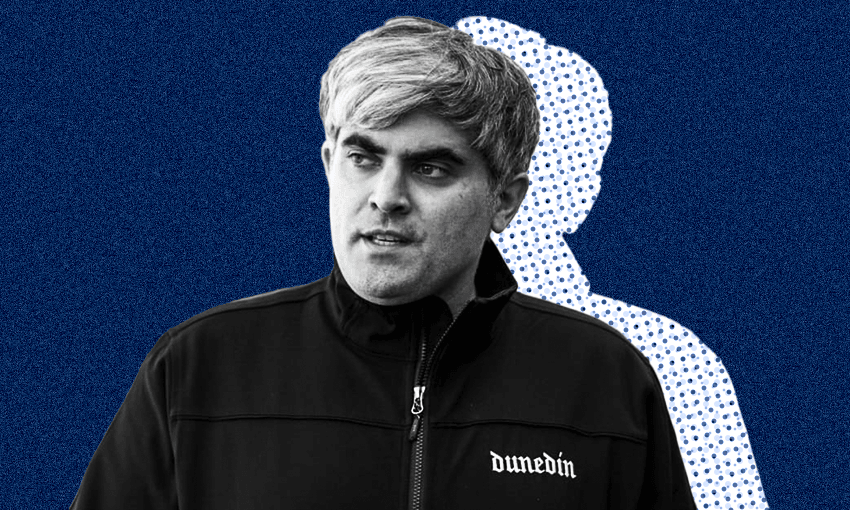An exit interview with the former mayor of Dunedin.
This article was first published on Stuff.
Aaron Hawkins likens losing the Dunedin mayoralty to going through ‘‘a very public divorce’’.
‘’You have made all of these long-term plans, and you thought you were in this together, and then you find very suddenly that is not what is happening any more.’’
And then came the emails: “Just fuck off already” said one.
‘‘What more do you want from me?’’ Hawkins, who had effectively lost his job, said of the unsolicited email.
The 38-year-old, who became the country’s first Green Party-backed mayor in 2019, says he knew the writing was on the wall on election day when he saw other results come in, including Invercargill, Whanganui and Lower Hutt.
Those results told him ‘’this was going to be a big deal up and down the country’’.
Hawkins, who only stood for mayor and not council, finished second to businessman Jules Radich.

His mayoral pay ends this week, but while he was looking for a job he had ‘’no intentions of leaving the city”.
While he has been touted as a future MP for the Green Party, he said he didn’t know if he had “the stomach for running another campaign at the moment”.
‘’And I have the small matter of trying to stay solvent,” he added.
Hawkins, who was first elected to council in 2013 after initially trying in 2010, was looking forward to spending more time with his family.

While many residents knew Hawkins as the non-driving hitchhiking city councillor, that changed when he was elected mayor in 2019.
‘‘What you can’t prepare for in this job is becoming so conspicuous.’’
The arts-loving mayor even stopped going to shows, noting that even the simple act of walking around town with his son – now six – could attract abuse from strangers.
He recalled his son trying to read a sandwich board outside a jewellery shop which featured his face, and the word ‘banned’.
‘‘There were a lot of angry people,’’ he said of the increasing vitriol, which included receiving a picture of his face photoshopped onto a man’s scrotum.
Hawkins said he was ‘’a pretty emotional person’’, but the abuse was harder when it was directed at his family.

Other instances included a council candidate publishing his address online, his family car being paint bombed, and a man turning up at his house late on a Saturday night, banging on the doors and windows to ‘‘talk to his elected representative’’.
But as a straight, white, middle-class man, Hawkins said he got a “pretty easy ride, whereas many of my female colleagues, or Māori colleagues, don’t’’.
The impact of Covid resulted in many people feeling angry, and that manifested in a backlash to some projects such as the George St dots – a Covid response – which NZTA contributed $18,000 towards and council $2500.

The project was frequently cited by council detractors. “Imagine that being the sum total of your political discourse,” Hawkins said of the complaints.
‘‘We did that for the right reasons … I don’t regret doing that.’’
Nor did he regret the redevelopment of George St, noting the project was later taken up ‘‘as a political crusade by politicians’’.
Despite the political campaigning on the issue, any move to change the current George St plans was ‘‘highly unlikely’’, he said.

Hawkins said he believed history would be kinder to the council he led.
While many believed parking was terrible in the central city, that was a narrative driven more by dubious claims than any ‘‘quantifiable metric’’.
The council before his election had been involved in big ticket items, most noticeably the stadium, and that had led to a period of ‘‘self-imposed austerity’’, he said.
That included no budgets for the likes of playgrounds and public art – ‘‘largely as a political response to community angst about the stadium project’’.

Hawkins, who had run for the mayoralty since 2010, said he never ran a negative campaign, but noted this time around ‘‘it was hard to fight against people so comfortable misrepresenting the work we are doing’’.
The Three Waters campaign had enabled and emboldened people, and was a ‘‘proxy for a far bigger and messier discussion about what it means to be a bicultural nation’’, he said.
The city’s relationship with mana whenua was the single most important political relationship for council to maintain, but the protest movement against water reform had been ‘‘pretty damaging”.
Hawkins was quick to dispel rumours that Wellington Green Party officials ran his campaign. Instead it was, he said, organised at a local branch level, and could not match the ‘‘saturation’’ campaign of his rival.
He was proud to have served as city mayor, noting he was from ‘‘a marginal political movement’’ which had no record of mayoral wins.
‘‘That is not something that happens very often … it is extraordinary that it ever happens,” Hawkins said.
“We took the opportunity to do as much as we could in the time that we had.’’
Follow our politics podcast Gone By Lunchtime on Apple Podcasts, Spotify or your favourite podcast provider.





